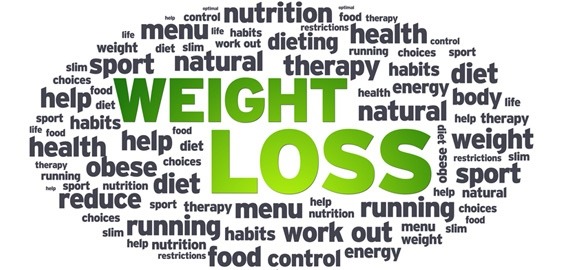Why we can Gain Weight When We’re Stressed—And How Not To
“No suggestion is powerful enough to override the survival instinct. Much as we like to think it’s survival of the fittest, we’re still programmed, in case of famine, for survival of the fattest” –John Fain (Harvard Medical School psychotherapist)
Have you ever found yourself mindlessly eating a tub of ice cream while you brood about your latest romantic rejection or eating a hamburger and fries in front of your computer as you furiously try to make a work deadline? Perhaps you’re a busy mum, eating the children’s biscuits and crisps in your car as you shuttle the kids back and forth to a slew of activities. Or you’re a small business owner desperately trying to make ends meet when you suddenly realize your waistline has expanded.
Stress is a word that we all recognize and can identify with. Unfortunately, research reveals that it’s also a fact of fat.
“Even if you usually eat well and exercise, chronic high stress can prevent you from losing weight—or even add pounds,”says Pamela Peeke, MD, author of Body for Life for Women.
Stress that goes on for a long period is a triple whammy for weight—it increases our appetites, makes us hold onto the fat, and interferes with our willpowerto implement a healthy lifestyle.
Let’s understand what is happening.
Our brains and bodies respond to stress in the same way; whether it’s worrying about finances, family issues, fear of a future event, or a genuine threat to our life etc. It doesn’t matter to the brain what the problem is, it simply identifies a “PROBLEM” and responds accordingly.
So every time you have a stressful day, your brain switches from its Intellectual mind to the primitive emotional (Health & Safety department) and instructs your cells to release potent hormones. You get a burst of adrenaline, which taps stored energy so you can “fight or flight”. At the same time, you get a surge of cortisol, which tells your body to replenish that energy even though you haven’t used very many calories. This can make you hungry…very hungry. And your body keeps on pumping out that cortisol as long as the stress continues.
If we think back to our early ancestors we can start to understand why this happens. (Remembering here that the primitive emotional brain still believes that we live in caves and are hunter-gatherers)
In most cases when we were at threat it was likely to be a wild animal or a fellow tribes person.
Our brain’s response would be to get us ready to run, very fast or fight. Both responses requiring a huge expenditure of calories to ensure our survival. We also didn’t know where the next intake of food would be so the body responds by then excreting cortisol which encourages storage of any remaining energy.
Today’s human, who sits on the couch worrying about how to pay the bill or works long hours at the computer to make the deadline, does not work off much energy at all dealing with the stressor! Unfortunately, we are stuck with a neuroendocrine system that didn’t get the update, so your brain is still going to tell you to reach for that plate of cookies anyway.
This also explains why we are encouraged to reach for the highly sugary fatty foods in that time of stress. Not only are they high in calories but they are reward the brain by releasing Dopamine, which feels good and as our brains are reward driven this quickly become a learned solution to stressful situations.
This soothing effect becomes addicting, so every time you’re anxious, you want fattening foods.
With your adrenal glands pumping out cortisol, production of the muscle-building hormone testosterone slows down.
“Over time, this drop causes a decrease in your muscle mass, so you burn fewer calories,”
explains Shawn Talbott, PhD, author of The Cortisol Connection.
“This occurs naturally as you age, but high cortisol levels accelerate the process.”
Cortisol also encourages your body to store fat—especially visceral fat, which is particularly dangerous because it surrounds vital organs and releases fatty acids into your blood, raising cholesterol and insulin levels and paving the way for heart disease and diabetes.
In the days when our ancestors were fighting off tigers and famine, their bodies adapted by learning to store fat supplies for the long haul. The unfortunate result for you and me is that when we are chronically stressed by life crises and work-life demands, we are prone to getting an extra layer of “visceral fat” deep in our bellies. Your belly has an ample supply of blood vessels and cortisol receptors to make the whole process flow more efficiently but the downside is that excess belly fat is unhealthy and difficult to get rid of.
And it can make it more difficult to fit into those lovely jeans you splurged on, leading to more stress about money wasted!
Unfortunately,excess cortisol also slows down your metabolism, because your body wants to maintain an adequate supply of glucose for all that hard mental and physical work dealing with the threat.
Importance of sleep
Do you ever lie awake at night worrying about paying the bills or about who will watch the children when you have to go to work? Research shows that worry is a major cause of insomnia. Our minds are overactive and won’t switch off. We may also lose sleep because of pulling overnights to cram for exams or writing until the early hours. This is where the “Stress bucket” analogy comes in.
Stress causes decreased blood sugar, which leads to fatigue. If you drink coffee or caffeinated soft drinks to stay awake, or alcohol to feel better, your sleep cycle will be even more disrupted.
Sleep is also a powerful factor influencing weight gain or loss. Lack of sleep may disrupt the functioning of ghrelin and leptin—chemicals that control appetite. We also crave carbs when we are tired or grumpy from lack of sleep. Finally, not getting our precious zzzz’s is viewed as a threat to our brain and erodes our willpower and ability to resist temptation. Sending straight back into the primitive survival part of the brain, thus maintaining the negative cycle and its continued activation.
In one study, overweight/obese dieters were asked to follow a fixed calorie diet and assigned to get either 5 and a half or eight and a half hours of sleep a night (in a sleep lab). Those with sleep deprivation lost substantially less weight
So how can we take back control and switch the primitive brain off enabling us to make informed decisions:
Reduce our stress – obviously…. But how?
Reverse psychology – we always view changing our body shape in conjunction with deprivation. The term Weight loss in its self is a negative statement. As we now know negativity fuels the primitive brain. So lets look to see what we can add:
Positive mindset
Small achievable targets that we can rewards ourselves for – motivation talk
Adding in: more water, greens
Doing more of what we enjoy with others
Find Rewarding Activities Unrelated to Food
Taking a hike, reading a book, going to a yoga class, getting a massage, patting your dog, or making time for friends and family can help to relieve stress without adding on the pounds. Although you may feel that you don’t have time for leisure activities with looming deadlines, taking time to relieve stress helps you to feel refreshed, lets you think more clearly, and improves your mood, so you are less likely to overeat.
- Drop and do 10.
That’s right, power out some push-ups. “Moving your muscles is an effective, instant stress reliever. It actually fools your body into thinking you’re escaping the source of your stress,” says Talbott. “Exercise makes your blood circulate more quickly, transporting the cortisol to your kidneys and flushing it out of your system.” But if push-ups aren’t practical, just flexing your hands or calf muscles will help move cortisol along, he says. Even taking a stroll on your lunch break is beneficial. In one study, Talbott found that 18 minutes of walking 3 times per week can quickly lower the hormone’s levels by 15%.
- Go slowly at meals.
Under stress, we tend to scarf down even healthy food. In fact, research has linked this behavior to bigger portions and more belly fat. But Epel hypothesizes that slowing down, savoring each bite, and paying attention to feelings of fullness may lower cortisol levels along with decreasing the amount of food you eat, thereby shifting the distribution of fat away from the belly.
- Stop strict dieting.
It’s ironic, but research shows that constant dieting can make cortisol levels rise as much as 18%. In addition, when your cortisol levels spike, your blood sugar goes haywire, first rising, then plummeting. This makes you cranky and (you guessed it) ravenous. When your brain is deprived of sugar—its main fuel—self-control takes a nosedive, and your willpower doesn’t stand a chance. (Balance your hormones and lose up to 15 pounds in just 3 weeks by learning how to reset your hormones! Click here)
- Give in to cravings‚ a little.
When stress drives you toward something sweet or salty, it’s okay to yield a little. “It’s much better to indulge in a small way and cut off your cortisol response before it gets out of control,” says Epel. “Have a piece of chocolate. You will feel better. Just stop at one.” If you have trouble restraining yourself, take precautions so you won’t binge. Buy a single cookie when you’re out instead of keeping a box at home; or keep them in the freezer so you have to wait for one to defrost.
- Curtail caffeine.
Next time you’re under duress, choose decaf. When you combine stress with caffeine, it raises cortisol levels more than stress alone. In one study by the University of Oklahoma, consuming the equivalent of 2½ to 3 cups of coffee while under mild stress boosted cortisol by about 25%—and kept it up for 3 hours. When subjects took 600 mg of caffeine (the equivalent of 6 cups of java) throughout the day, the hormone went up by 30% and stayed high all day long. You’ll experience these effects even if your body is accustomed to a lot of lattes. And because high cortisol levels can contribute to stress eating, you might want to consider quitting caffeine altogether.
- Power up breakfast.
Deficiencies in B vitamins, vitamin C, calcium, and magnesium are stressful to your body. And these deficiencies lead to increased cortisol levels and food cravings, says Talbott. But you can fight back by eating a breakfast that’s high in these nutrients. He suggests some OJ, a grapefruit, or a large handful of strawberries to supply vitamin C; 6 to 8 ounces of low-fat yogurt, which contains calcium and magnesium; and a whole grain bagel or toast with a bit of peanut butter. Whole grains are bursting with B vitamins, while peanut butter contains fatty acids that can decrease the production of stress hormones.
- Sleep it off.
The most effective stress-reduction strategy of all: Get enough shut-eye. “Your body perceives sleep deprivation as a major stressor,” says Talbott. A University of Chicago study found that getting an average of 6½ hours each night can increase cortisol, appetite, and weight gain. The National Sleep Foundation recommends 7 to 9 hours. As if that weren’t enough, other research shows that lack of sleep also raises levels of ghrelin, a hunger-boosting hormone. In one study, appetite—particularly for sweet and salty foods—increased by 23% in people who lacked sleep. The good news: A few nights of solid sleep can bring all this back into balance, and getting enough regularly helps keep it there. Says Talbott, “You’ll eat less, and you’ll feel better, too.”




